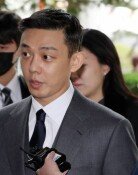NK Succession Expected to Take Form After Elections
NK Succession Expected to Take Form After Elections
Posted March. 09, 2009 07:28,
When a South Korean lawmaker visited the North Korean capital of Pyongyang last year, the North Korean official who greeted him at the airport was not the chairman or vice chairman of the Asia Pacific Asia-Pacific Peace Committee.
Instead, the official was a councilor, which is the Norths title for a foreign relations officer.
Given that the lawmaker suffered a bit of a letdown, the councilor said, I am a deputy to the Supreme Peoples Assembly (a position equal to that of a South Korean lawmaker). Dont feel so disappointed.
In North Korea, a parliamentary deputy is nothing but a rubber stamp position in a country with a one-man and one-party dictatorship. The deputies positions vary depending on whether they have a title in a powerful organization such as the Workers` Party or the National Defense Commission.
Nevertheless, the Norths parliamentary elections, which are held every five years, and the first meeting of the assembly attract international attention because North Korean leader Kim Jong Il and the Workers` Party announce major programs in the name of the North Korean people.
The 12th elections for the deputies are particularly intriguing as they open Kims third administration and are the starting point for his power succession scenario. The assembly will announce the election results today and its first plenary session is early next month.
The (North) Korean Central Broadcasting Station and other state-run media carried updates on the elections yesterday, with voter turnout of 93.1 percent as of 2 p.m.
Attracting the most attention is if Kim Jong Un, the third son of supreme leader Kim, will officially start his political career as a deputy.
On Saturday, the Daily NK, a South Korean Internet newspaper specializing in North Korean news, quoted a North Korean inside source as saying Kim Jong Un was nominated a candidate for deputy in a constituency in Haeju, South Hwanghae Province.
Seoul intelligence, however, said nothing has been confirmed.
Ahead of the elections, North Korea has been conducting a propaganda campaign suggesting a third-generation power succession.
According to North Korean broadcasts, a poet of the April 25 Hall of Culture, a North Korean military facility, wrote a poem on continuing the Norths revolutionary bloodline of Kim Il Sung from generations to generations.
Even if one of Kim Jong Ils sons becomes a deputy, it does not necessarily mean he is the heir to the throne. Nomination as a candidate is one thing, but assuming the position is another.
Kim Jong Il was designated heir apparent to his father Kim Il Sung in 1974, but became a deputy in 1982.
In 1998 and 2003, a man named Kim Jong Nam was included on the list of deputy candidates. Whether he was the eldest son of Kim Jong Il has not been confirmed, however.
In the 1998 parliamentary elections, the North replaced 64 percent of its deputies and 50 percent in 2003. Therefore, it seems clear that the North Korean leadership will conduct a major reshuffle of its power elite after this years elections in consideration of succession.
Kim Jong Il might also revise the North Korean constitution in the assemblys first session this year to establish a succession scenario. Experts say he could make a new position for his successor similar to one his father made before his succession.
Also drawing attention is if Kim Jong Il will be renamed chairman of the National Defense Commission and who will take or be expelled from key posts.
kyle@donga.com
Headline News
- Med professors announce intention to leave hospitals starting Thursday
- Bridge honoring Sgt. Moon Jae-sik unveiled in Pennsylvania
- Chief of Staff Chung tells presidential secretaries to stay away from politics
- US FTC bans noncompete agreements
- N. Korea launches cyberattacks on S. Korea's defense companies







